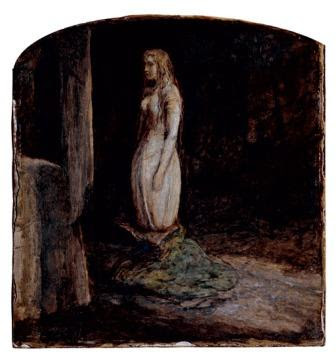 |
| Ear of Wheat by Michael J. Connors Morguefile |
I've noticed Sussex churches often have lychgates - and so I 'borrowed' a custom that's found in other counties. Local children, or members of the family, tie up the gates out of the churchyard, and won't let the Bride and Groom out until they pay a ransom.
 |
| Bolney Lychgate via John Gasson Creative Commons {The block in the middle is where they rested coffins} |
Traditionally, there were many ways for a young woman to find out who her husband would be. One of the best nights for such divination was the Eve of St. Agnes (20th January) John Keats wrote a marvellous, rather Gothic and sensual poem about this.
They told her how, upon St. Agnes' Eve,Young virgins might have visions of delight,And soft adorings from their loves receiveUpon the honey'd middle of the night,If ceremonies due they did aright;As, supperless to bed they must retire,And couch supine their beauties, lily white;Nor look behind, nor sideways, but requireOf Heaven with upward eyes for all that they desire.
 |
| 'Madeline' by Millais 1850 courtesy of Martin Beek Creative Commons |
Halloween, of course, was another time. In Sussex, a young woman would place an apple pip on the fire grate, representing the man she might marry. If the pip burned silently - that courtship would go smoothly with a happy ending; if the pip burst, they would break up.
 |
| Apple Pip by Mary K. Baird Morguefile |
All hail to thee, Moon, all hail to thee,I pray thee good Moon, reveal to meThis night who my husband must be.
 |
| Moonlight by Paul Anderson Morguefile |
Then you waited to see his 'glim' or spirit appear.
Would you dare?
Information from Superstitions of Love & Marriage by E. & M. A. Radford, ed. C. Hole, and A Sussex Garland, T. Wales
No comments:
Post a Comment